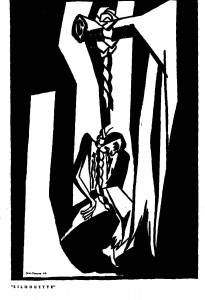Richard Wright on White Supremacy
Richard Wright is one of my favorite writers. I admire his gorgeous prose, his ability to distill complicated ideas, and his uncompromising politics. In “12 Million Black Voices,” he does a good job describing how white supremacy plays out in the lives of African Americans. I am currently in the beginning stages of a project about lynching and so I am re-reading some of Wright’s work.
Below Wright discusses the lynching of black people in the context of white supremacy:
And we know that if we protest we will be called “bad niggers.” The Lords of the Land will preach the doctrine of “white supremacy” to the poor whites who are eager to form mobs. In the midst of general hysteria they will seize one of us — it does not matter who, the innocent or guilty — and, as a token, a naked and bleeding body will be dragged through the dusty streets. The mobs will make certain that our token-death is known throughout the quarters where we black folk live. Our bodies will be swung by ropes from the limbs of trees, will be shot and mutilated.
And we cannot fight back; we have no arms; we cannot vote; and the law is white. There are no black policemen, black justices of the peace, black judges, black juries, black jailers, black mayors, or black men anywhere in the government of the South. The Ku Klux Klan attacks us in a thousand ways driving our boys and girls off the jobs in the cities and keeping us who live on the land from protesting or asking too many questions (p.45).
He writes about how white supremacy keeps its grip and reproduces its power:
This is the way the Lords of the Land keep their power. For them life is a continuous victory; for us it is simply trouble in the land. Fear is with us always, and in those areas where we black men equal or outnumber the whites fear is at its highest. Two streams of life flow through the South, a black stream and a white stream, and from day to day we live in the atmosphere of a war that never ends. Even when the sprawling fields are drenched in peaceful sunshine, it is war. When we grub at the clay with our hoes, it is war. When we sleep, it is war. When we are awake, it is war. When one of us is born, he enters one of the warring regiments of the South. When there are days of peace, it is a peace born of a victory over us; and when there is open violence, it is when we are trying to push back the encroachments of the Lords of the Land (p.46).
Who conveys the nature of white supremacy better than this? It’s a rhetorical question…

